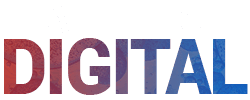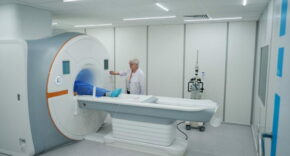
As AI agents reshape work across industries, SuperDial is targeting one of healthcare’s most expensive and invisible burdens: administrative phone calls. Today, the company announced $15 million in new funding to scale its voice AI platform, which automates high-friction insurance calls that cost provider organizations and billing companies billions of dollars every year.
The debt and equity series A round was led by SignalFire, with participation from Slow Ventures, Box Group, and Scrub Capital. It includes $3 million in venture debt for SuperDial to invest in R&D and go-to-market initiatives. In total, the company has now raised over $20 million in funding. This also marks one of the first investments from SignalFire’s new $1 billion fund focused on applied AI.
SuperDial builds AI agents that handle outbound phone calls from providers and billing companies to insurers – navigating phone trees, waiting on hold, and conducting live conversations with payer reps. These AI agents support tasks like benefits verification, prior authorization, claims follow-up, and credentialing. When a call can’t be completed by an AI agent, SuperDial’s human call center team steps in, ensuring reliable outcomes while continually improving the AI.
The platform integrates with EHRs and other systems of record to automate documentation, including writing back data gathered from calls, such as claims status updates. Customers rely on SuperDial not just to cut costs, but to unlock capacity across their revenue operations teams. Customers have reported up to 3x cost savings per call and 4x productivity gains for their existing billing teams.
SuperDial was founded by Sam Schwager and Harrison Caruthers, who met at Stanford while studying computer science. After building a healthcare billing company that spent thousands of hours on repetitive calls to payers, they saw the opportunity to automate the problem. What started as an internal tool quickly grew into a standalone solution.
“The timing is perfect for us to tackle this problem at scale, with AI capabilities quickly maturing and the healthcare sector looking for new ways to drive efficiency by leveraging next-gen technology. Our success to date, and the incredible level of interest and excitement we’re seeing from the market, are clear signs that we’re solving a real, urgent problem,” said Sam Schwager, Co-Founder and CEO of SuperDial.
Since launching at the end of 2023, the company has quickly scaled to seven figures in revenue and tens of thousands of calls per week. Earlier this year, SuperDial acquired MajorBoost, a voice AI company specialized in navigating complex phone trees and insurer workflows. The acquisition deepened SuperDial’s technical team and further cemented its leadership in healthcare-specific call automation.
SuperDial’s growth comes as healthcare organizations seek to cut admin costs without expanding headcount. The $150B U.S. RCM market still relies on manual phone calls for basic tasks – calls that can take over an hour and pull staff away from higher-impact work.
SuperDial’s customers include RCM companies and large provider organizations – including DSOs and MSOs – that manage billing in-house. Their customers rely on SuperDial to improve financial performance, reduce burnout, and unlock their teams’ capacity to focus on higher-value work. At West Coast Dental, SuperDial now handles over 10,000 calls per month to check claim statuses, a process that previously left nearly 70,000 claims in backlog and would have required five new hires to process. With SuperDial, the team has significantly reduced AR days and gained trustworthy, up-to-date visibility into claims.
“SuperDial isn’t just automating phone calls – they’re building the connective tissue for how the healthcare ecosystem will communicate in the future,” said Yuanling Yuan, Partner at SignalFire. “We believe agentic AI infrastructure is inevitable, and SuperDial is leading that shift with rapidly growing traction and a team that deeply understands the problem. This is exactly the kind of applied AI we’re excited to back.”
Looking ahead, SuperDial will deepen its EHR integrations, expand to new administrative workflows, and continue training its agents using real-world call data. Although healthcare never built the APIs to enable clean, system-to-system communication, SuperDial is building the next best thing: a network of AI agents that can navigate fragmented infrastructure on behalf of the organizations that rely on it. SuperDial believes the future of healthcare coordination will be agent-powered – where payers, providers, pharmacies, labs, and other healthcare organizations can seamlessly communicate with one another, AI-to-AI. And SuperDial will power that future.












